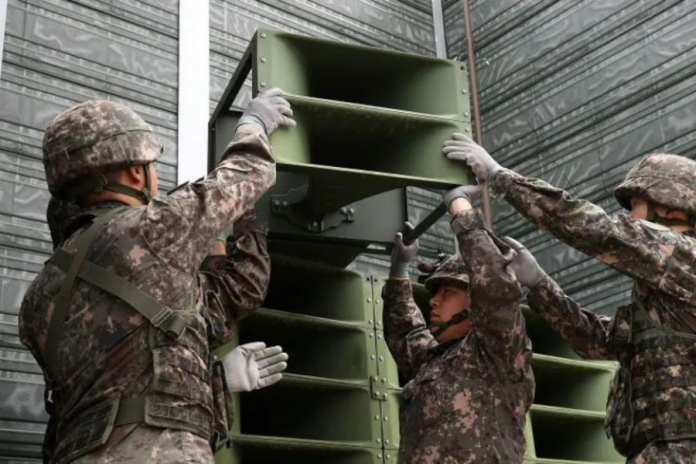South Korea has halted its border loudspeaker broadcasts aimed at North Korea in a move officials describe as a step toward rebuilding mutual trust and reducing tensions on the Korean Peninsula.
The decision follows the recent election of President Lee Jae-myung, who campaigned on a platform of re-engaging with Pyongyang and fostering dialogue between the two Koreas. The broadcasts, which resumed in June 2024 after a six-year pause, were initially a response to North Korea’s use of balloons to send garbage across the border. These loudspeakers broadcast a mix of news, democratic values, and updates about life in South Korea.
North Korea has long viewed the broadcasts as a hostile act, even threatening to destroy the loudspeaker systems in the past.
According to the South Korean military, the suspension is intended to promote peace and restart constructive dialogue. However, human rights groups expressed concern over the move, arguing the broadcasts served as one of the few ways to reach ordinary North Koreans with outside information.
Critics, such as the Database Center for North Korean Human Rights, warned that the silence could aid North Korean efforts to maintain isolation and information control. Still, residents near the border have welcomed the decision, citing constant noise disruptions as a source of stress.
Officials in Ganghwa County expressed hope that North Korea would reciprocate by ending its own audio broadcasts, enabling life along the border to return to normal.
Military sources indicated that this is a suspension—not a permanent end—meaning broadcasts could resume if tensions escalate. The shift coincides with a noticeable drop in North Korea’s garbage balloon activities and comes nearly a year after the renewed psychological campaigns began.
Despite past aspirations for reunification, North Korea officially abandoned that goal last year, further complicating inter-Korean relations. The two nations technically remain at war, as no peace treaty was signed after the 1953 armistice that ended the Korean War.

